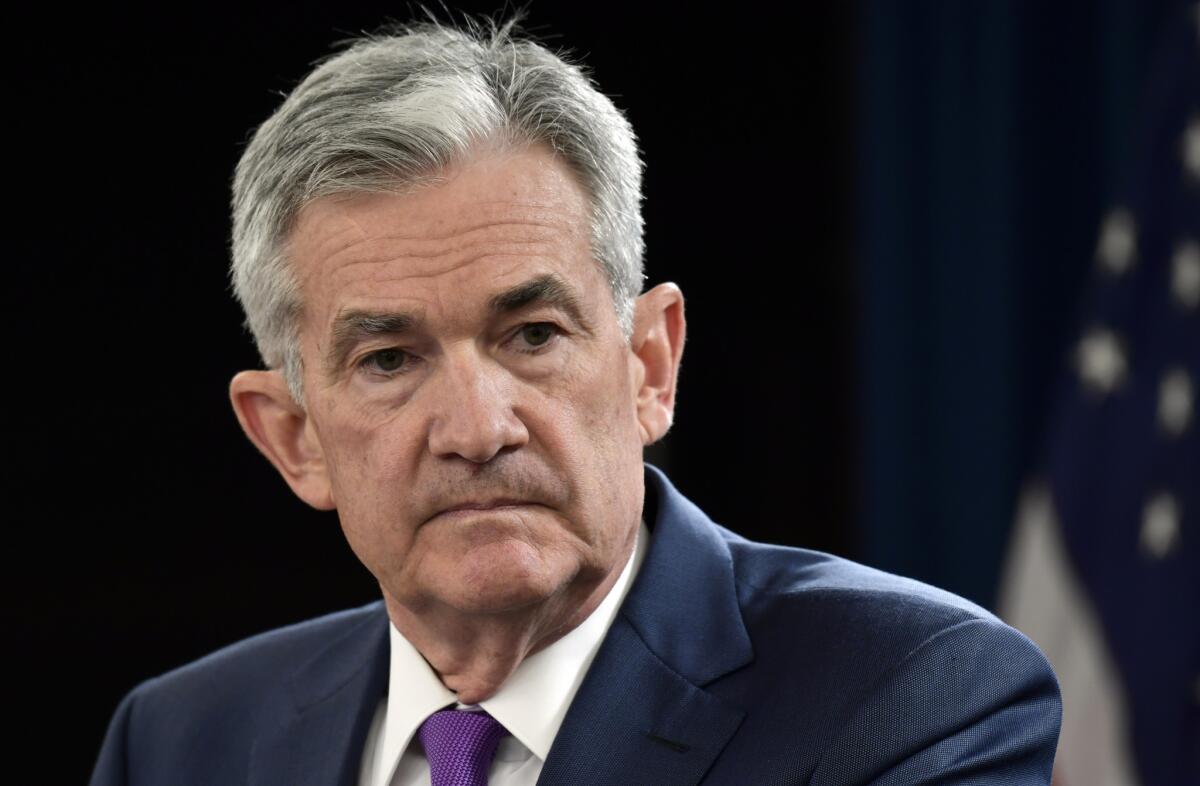Surprise! Trump gets something else wrong about the Fed

- Share via
President Trump has spent months berating the Federal Reserve Board of Governors — and particularly the man he picked to lead the board, Jerome H. Powell — for the Fed’s efforts to shift back to a neutral approach to the economy after years of recession-driven stimulus. Lately, Trump has focused on the fact that other countries are trying to boost their economies with easy money policies, cutting their interest rates below the U.S. level.
Here’s an example from Thursday morning:
He went on to tweet, “The economy’s doing very well. The Federal Reserve can easily make it Record Setting! The question is being asked, why are we paying much more in interest than Germany and certain other countries?”
There’s a bit to unpack here, but let’s start by answering Trump’s question. Interest rates are a product of more factors than a central bank’s actions — the law of supply and demand also applies, as well as inflation expectations and macroeconomic forces. (And by the way, the German central bank doesn’t set interest rates — that’s handled by the European Central Bank.) In this instance, Germany’s economy is stuttering while ours is showing, at worst, signs of a slowdown on the horizon. The U.S. GDP grew in the last quarter, while German output actually contracted slightly. That downturn was a result, in part, of the trade tensions that Trump has sparked globally, which have spilled over onto the export-dependent German economy.
So one would expect that demand for Germany’s long-term government bonds would increase as nervous investors look for a safer place to put their money, which means Germany can sell those bonds at lower interest rates. In fact, the demand is so great, investors are willing to accept a negative interest rate, which puts them at risk of losing money on the bonds if they can’t sell them before maturity.
Trust me, we don’t want to be in a position where the U.S. economy is looking so bleak, investors are willing to buy Treasury notes at a loss. Compared to Germany, we are #winning. And our interest rates reflect that.
Besides, Trump’s own assertion about the state of the U.S. economy guts his argument for the Fed to lower its target for short-term interest rates. A healthy economy needs no help from artificially low interest rates. As the last two recessions demonstrated, when the Fed keeps its foot on the gas for too long while the economy is recovering, it plants the seeds for a new downturn.
Allowing short-term rates to rise back to a neutral level is not a popular thing to do, but allowing the economy to overheat or asset bubbles to grow has even worse consequences. Besides, as the L.A. Times’ editorial board put it Wednesday, “If the Fed uses all its firepower while the economy is still growing, it will have little leverage left when an actual recession strikes.”
Granted, these details are too weedy for the president, whose own views on monetary policy are based less on principle than on expedience. After all, this is a man who has argued for an artificially weaker dollar while accusing our trading partners of manipulating their currency. Maybe that’s just a bad thing when someone else does it.
More to Read
A cure for the common opinion
Get thought-provoking perspectives with our weekly newsletter.
You may occasionally receive promotional content from the Los Angeles Times.










